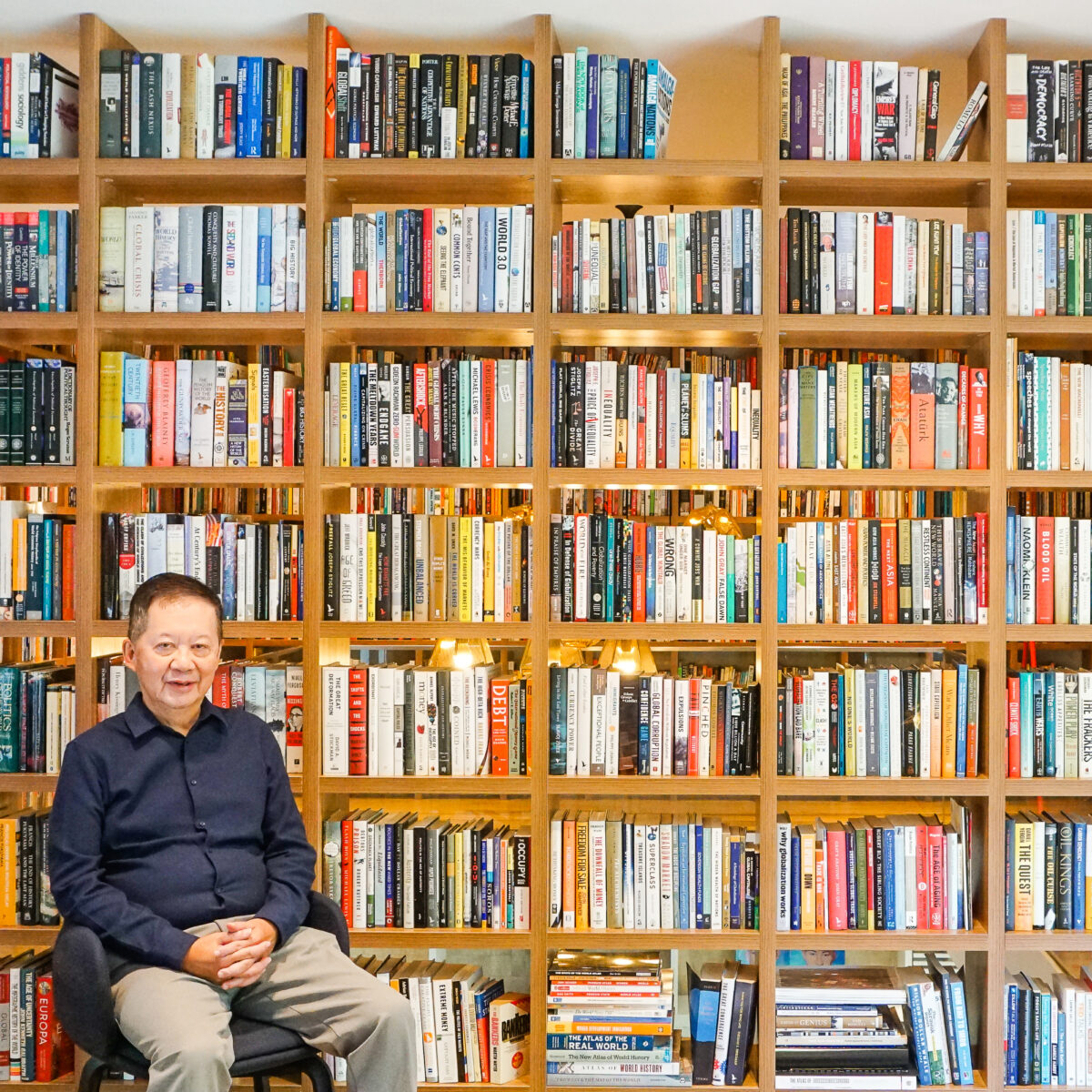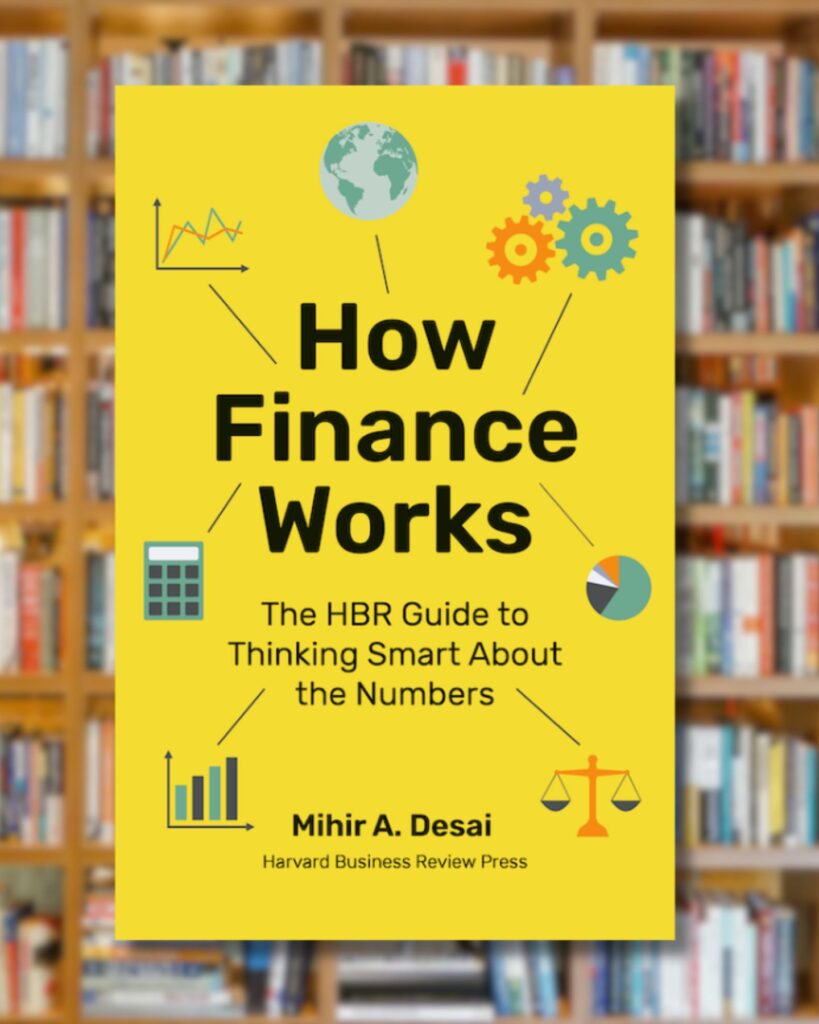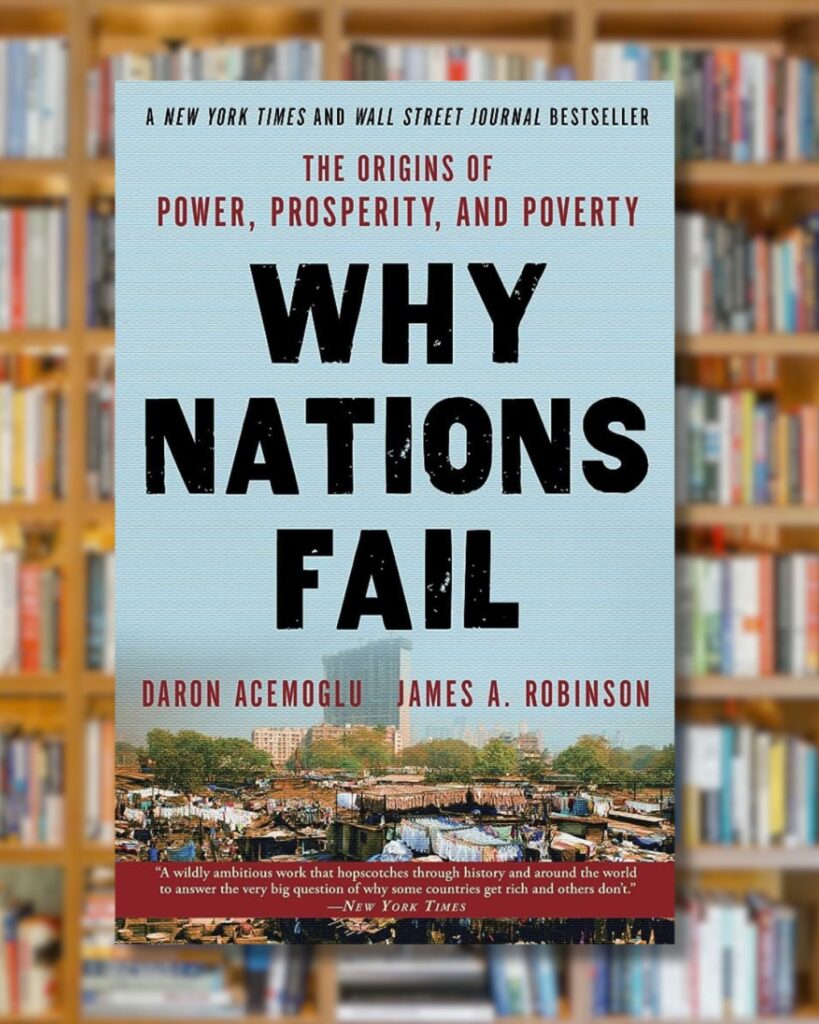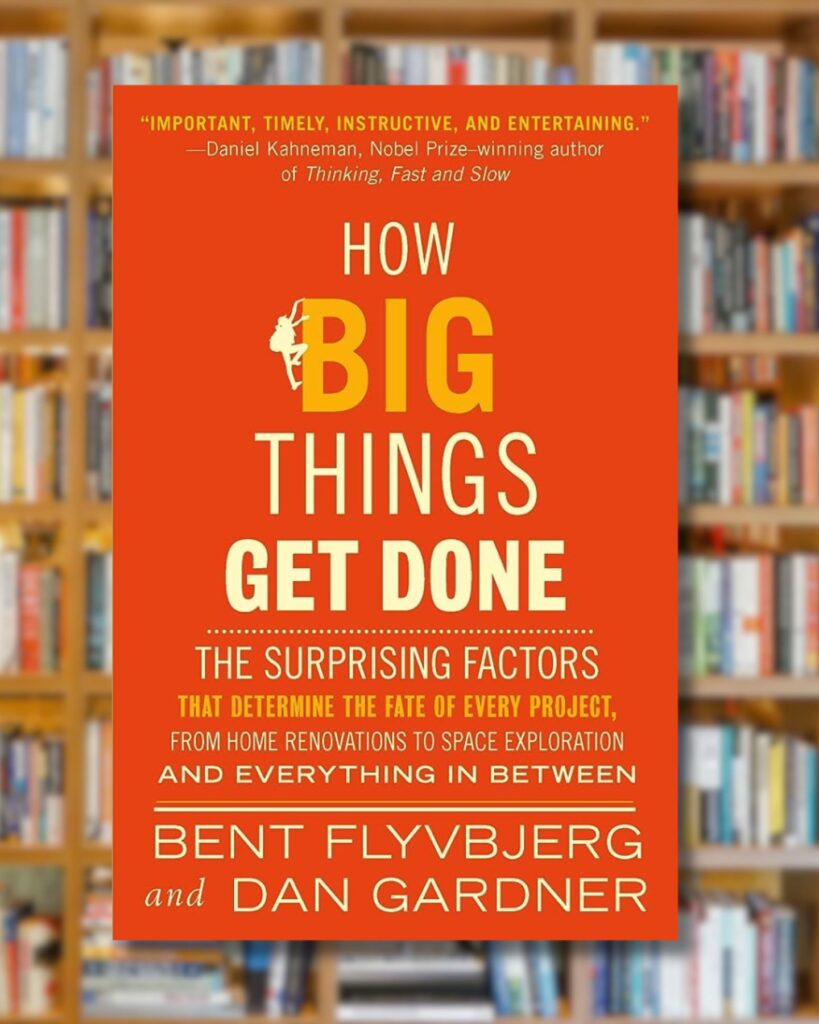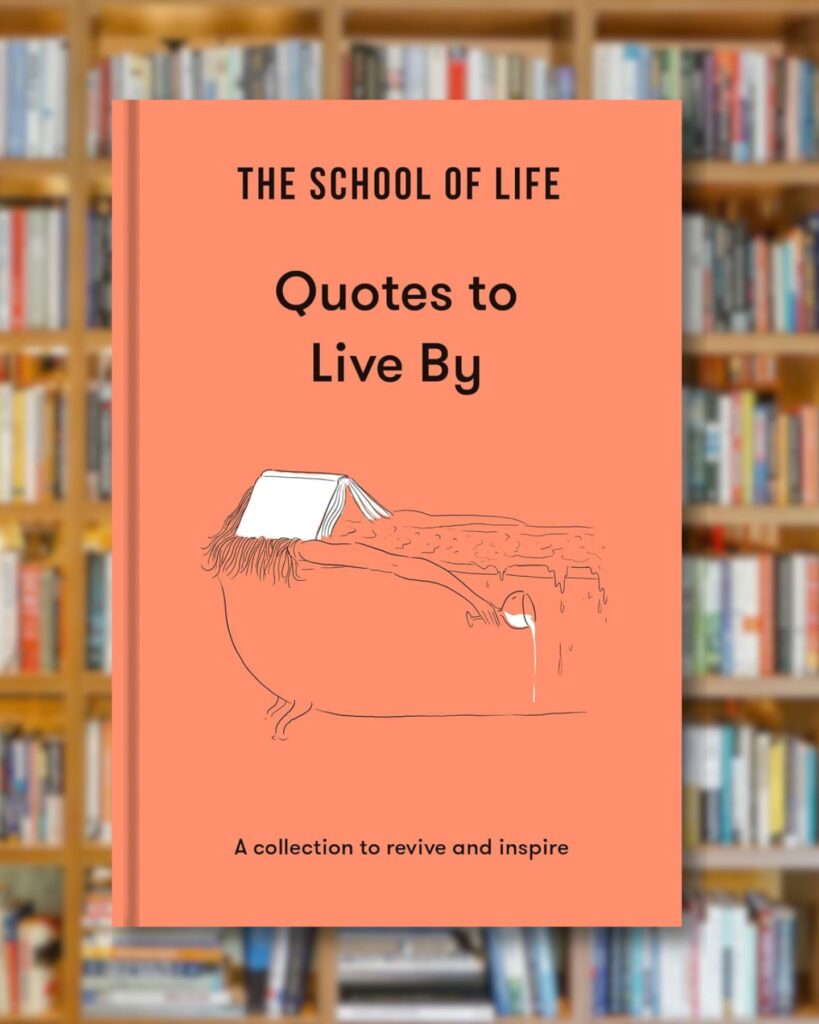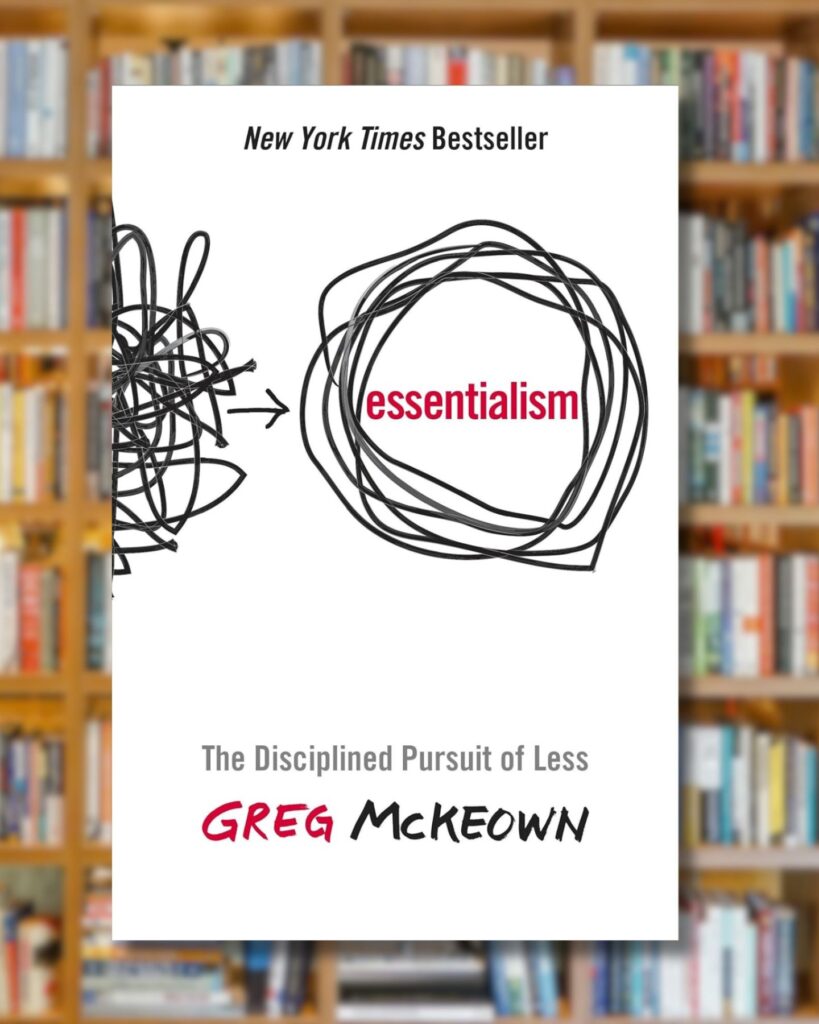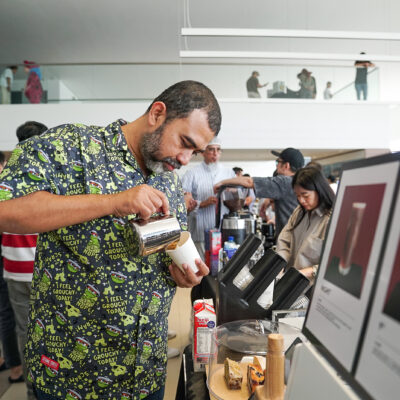80,000 books in the library and counting!
Dato Timothy Ong of Asia Inc. Forum, is a bonafide bibliophile. Here are picks of five favourite books for big reads!
‘HOW FINANCE WORKS: The HBR Guide to Thinking Smart About the Numbers’
by Mihir A. Desai
An excellent, easy to understand guide for understanding numbers. Like many, I have always found finance to be somewhat inaccessible. With this exceptionally well-organised book based on Professor Mihir’s popular class at Harvard Business School, there is no longer an excuse. ‘ The Art and Science of Valuation ‘ chapter — was something I found useful. If only I had a guide like this early in my business career, I would have made better decisions and avoided a number of costly miscalculations.
‘WHY NATIONS FAIL: The Origins of Power, Prosperity and Poverty’
by Daron Acemoglu & James A. Robinson
This is an ambitious book on a central question: Why are some nations rich while others are poor. Distinguished professors, Daron Acemoglu (MIT) and James Robinson (Harvard) combine insights from economics, political science and history for a thought-provoking answer to this question. It’s a very good example of how political economy can be relevant to understanding the big challenges of our time. By locating the origins of wealth and poverty in man-made institutions. I believe the core message of this book can be profoundly encouraging and optimistic.
‘HOW BIG THINGS GET DONE: The Surprising Factors Behind Every Successful Project from Home Renovations to Space Exploration’
by Brent Flyvbjerg and Dan Gardner
An important part of what I do as a businessman and board director involves proposing and evaluating projects, setting project timelines and budgets, and overseeing their completion. A central challenge is how to deliver projects on time and within budget. There’s much practical value in this book, especially from its core thesis which clearly explains that in short, it’s usually not a technical problem; it’s a people problem. For successful project management, rushing to action may seem the right thing to do but it rarely is. Instead, we should Think Slow and Act Fast, meaning don’t rush to implementation without proper planning. The latter can be costly and dangerous.
‘QUOTES TO LIVE BY: A Collection to Revive and Inspire’
by The School of Life
Although I love the company of books, there are often times particularly as I get older, when I would rather read in small botes than in larger chunks. I’m so fond of this delightful volume of well curated aphorisms or maxims which illuminate and inspire important aspects of life. The section on Relationships is my favourite; the quality of our relationships being for most human beings central tp happiness. A sample aphorism from here: “The constant challenge of modern relationships — how to prove more interesting that the other’s smartphone”. Another sample: “The best way to help a relationship is to not expect everything from relationships”. There is much, much more.
‘ESSENTIALISM: The Disciplined Pursuit of Less’
by Greg McKeown
As someone who wears multiple hats and finds saying ‘No’ difficult, I often find myself stretched too thin, stressing over nonpriority matters, busy but not productive. This book is useful reminder to take a step back to focus on what is truly important: to do less but to do it better, to understand we cannot do everything — that there are trade-offs and choices to be made; to constantly review priorities and update plans accordingly. The people you say no to may be temporarily disappointed, but you are likely to feel better about the relationship going forward.

